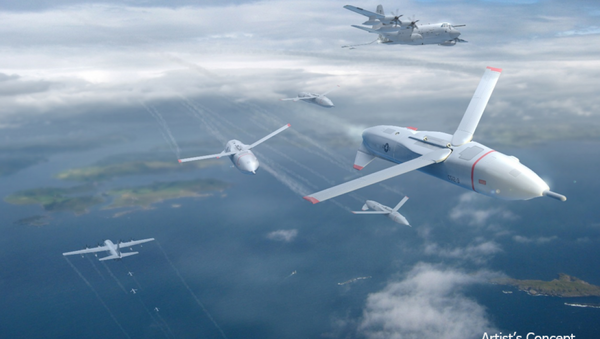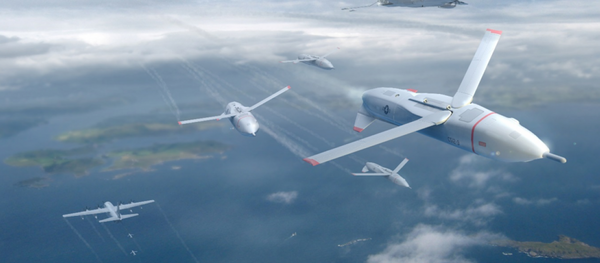Unmanned Aerial Vehicles (UAVs), also known as drones, have experienced a rapid expansion in recent years, with proponents arguing that the use of drones for military purposes is vital as they provide a cheaper, safer option for targeting enemies or conducting surveillance in areas deemed too dangerous to send military personnel.
They have been used by the US and UK among many other countries as part of overseas operations, with officials claiming they are key to carrying out counterterrorism operations.
Drones 'Going To Come Back To Haunt Us'
However, others have been less enthusiastic about the use of drones for military purposes, arguing that they merely make it easier for countries to engage in overseas military campaigns, while they also set a dangerous precedent for the further development of automated robotic weapons.
ICRAC member Heather Roff, vice-chair Peter Asaro and chair Noel Sharkey are all quoted in this article on military…
Posted by ICRAC on Tuesday, August 25, 2015
Noel Sharkey, professor of AI and Robotics at the University of Sheffield, who also doubles as the chair for the International Committee for Robot Arms Control (ICRAC), told Sputnik that he has concerns about the proliferation of drones.
"The increasing use of drones is of great concern to me generally, particularly, military armed use," he said.
"It's eventually going to come back and haunt us and violate our civil rights."
Speaking from Austria where he is attending an International Peace Institute conference, Mr Sharkey refuted claims that drones were a safer way of carrying out warfare, saying that their use ultimately lowers the threshold for military action and makes it "too easy to start conflicts."
The need to ban Lethal Autonomous Weapon Systems (#KillerRobots): ICRAC expert opinion in English, Italian, German | http://t.co/2jqCSheBas
— ICRAC (@icracnet) August 18, 2015
"There's no difference in the sense that somebody gets killed [in a drone strike]. But the big difference is that the cost of ground operations is absolutely massive, the logistics are massive, they're really-really difficult. But if you've got drones, there's not much cost, there's no worry about any of your highly trained men being killed — you can just sweep in anytime."
Concerns Over Non-War Zones
Mr Sharkey told Sputnik that he had huge concerns over the use of drones in areas not designated as official war zones, as it opened up a legal minefield of what is accepted under national and international law
"Somehow there's this perception that drones are highly precise, and clearly with the number of civilian casualties they're not as precise, and they can just fly around and pick people off at will in countries we're not even at war with, and that's the kind of expansion that's the real worry."
Some experts have warned that in areas not-designated as official war zones, human rights law applies, where people have the right to be safe and surrender. However, critics say that drone strikes in such areas don't give people this opportunity, and could leave governments liable.
On top of the impact of air attacks, critics of drone use have pointed to the traumatic stress such campaigns have on local populations under constant surveillance.
"These drones are quite noisy and they're buzzing overhead all day, mainly for surveillance purposes, so you can hear them all the time. And then every so often it's 'smack' and somebody is dead or groups of people are dead. So, people are in a constant state of fear, with people talking about post traumatic stress from living underneath drones all the time," Mr Sharkey said.
'Killer Robots' — A Step Too Far
While there is concern over the expansion of drones, there is a huge push among AI experts and NGOs to prevent unmanned warfare from going to the next step, with fears automated 'killer robots' could be used in the near future.
"I think we're at a stage where it's going to be difficult to pull back [on armed drone weapon use] now," Mr Sharkey said.
"I don't know if it's really possible to stop it or not, but what I think we really need to have a high-level meeting on how to regulate these attacks. What should be done? What are the international laws? I think we need new international laws to constrain them."
Driving the push to prevent automated robotic weapons from becoming a reality is the 'Campaign to Stop Killer Robots' — which includes organizations such as ICRAC.
Noel Sharkey said the whole idea of the killer robots campaign is to "stop the next stage" which would prevent countries from using drones that operate without human control.
"You just designate and area, designate a target, and send it off. It [autonomous robot] finds the target and it kills them itself. And for me, that's a step too far. We came into the drone issue too late, and what we're trying to do is to ban them [autonomous robots] before they start, because once they start how do you draw them back again?"
If action isn't taken and international laws on the matter aren't passed, Mr Sharkey believes it will "lead to a complete arms race and proliferation."
"People are thinking about it in terms of gaining a military edge. People are thinking in a very narrow way by saying it will be to a boost to the military.
"But if you think about it enough, what you're doing is actually setting in motion a new kind of weapon that's going to lead to tears in the end, because when everybody has them you can start wars accidentally."






